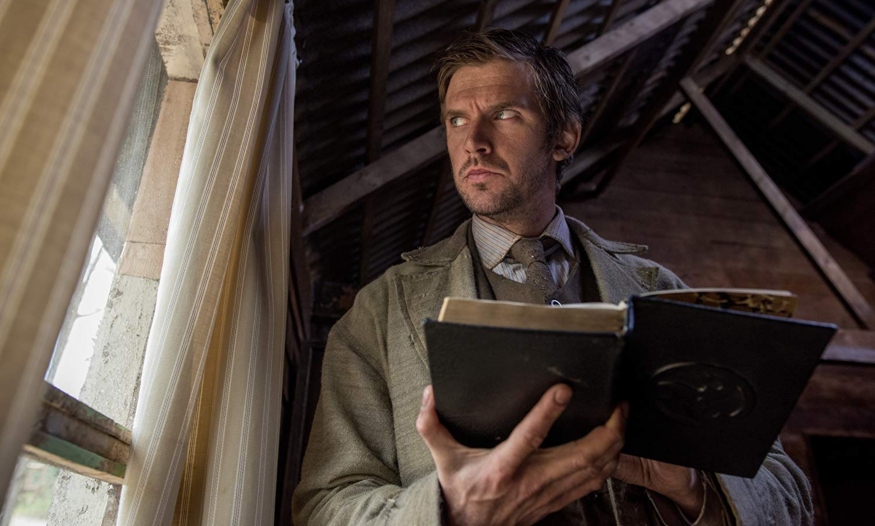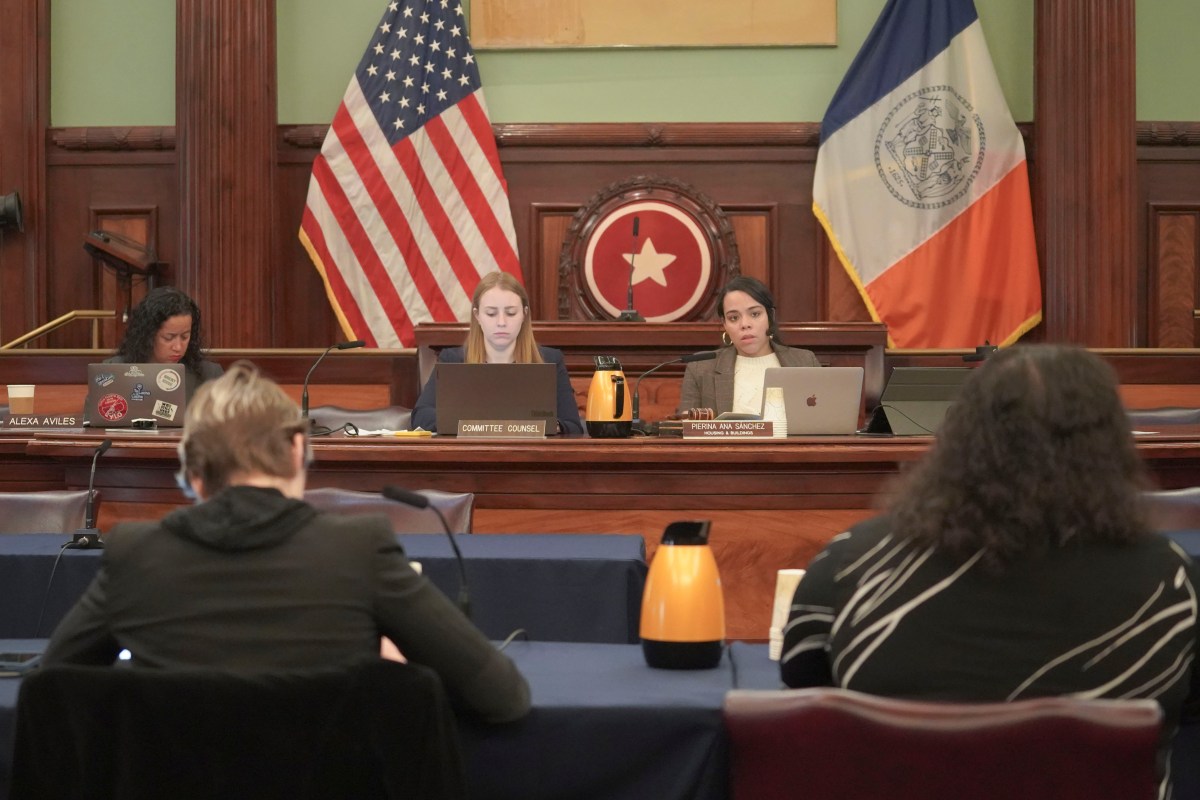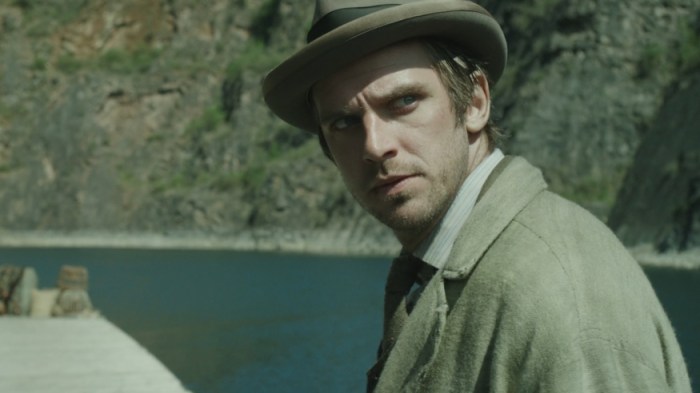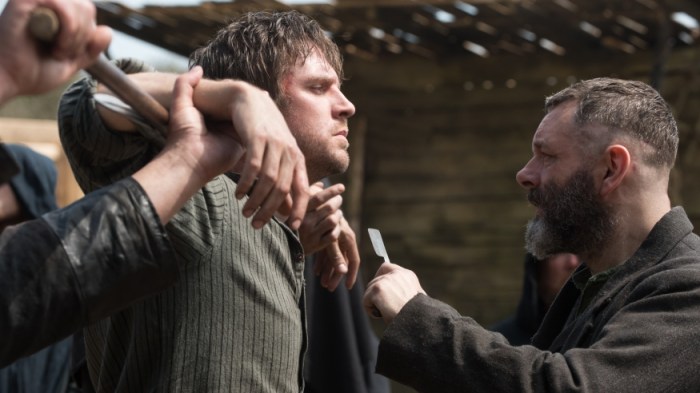WARNING: There are MAJOR SPOILERS ahead for the ending of “Apostle.”
So if you’re yet to watch the film on Netflix then please bookmark this article, watch Gareth Evans’ terrifying period horror, and then return to read what Michael Sheen and its writer and director have say on its ending.
Writer and director Gareth Evans and its star Michael Sheen have opened up about the conclusion of “Apostle,” admitting that the final moments of a quickly healing Thomas Richardson (Dan Stevens) and a smiling Malcolm (Sheen) show the cyclical nature of politicians using religion to profit their own needs.
“It felt like a natural progress for the character,” explained Evans. “Richardson has stumbled upon this island where this deity has sought him out and she has realized that he has the power to free her from her captivity.”
“Free her from being a slave to these guys. And in return he has discovered his faith. It is almost like by the end of the movie he has replaced her and become the lifeblood of the island.”
“So if the island was to continue then it would continue with him as the God. So he has become the God of that place.”
Sheen added, “The fact that Malcolm is stood there on the hill with him and looks across and then learns of that position and smiles. It is this idea of man’s capacity to turn power into political gain.”
“That as a subtext is not something that is new. It has existed for hundreds of years. It is cyclical.”
“It is this idea of, ‘What’s next? Is this going to revert back to the beginning. Is this part 2 of Malcolm’s attempt to make the island his idyll.’ We wanted it have the cyclical nature of the elements of man.”
“We talked about the ending quite a bit. It changed over time,” Sheen continued. “We always wanted it to be ambiguous. But the possibility that people just don’t learn, and the temptation of the vision and dream continues no matter what the cost.”
“So the possibility that it is just all going to happen again and recycle. We thought that was quite an exciting way to end the story.”
When it came to the alternative endings, Evans added, “We floated different ideas. We had different endings. One that we had been prepping for and one that was in the back pocket. The one we didn’t shoot was much more nihilistic.”
“It would have involved returning to the village and potentially returning to the table with the drill. I am glad we didn’t do that. Because that would have tipped the table back a little bit too much.”
“In terms of the nihilism of it. But any time we did anything different we did with the film we had conversations with the cast, the crew and everyone on board. Filming is a collaborative process and that extends all the way through.”
But while there are obviously many negative qualities to Malcolm, Sheen was originally attracked to the character because he believes Malcolm actually started out with a noble dream that just became more and more toxic.
“For Malcolm the main thing that I connected with and wanted to explore was rather than playing the villain and bad guy and just being horrible, the thing I really connected to was the idea of a man who had a vision and a dream. And it is a noble dream.”
“It is driven by noble motives, to create a utopia on this island for people that have been outcasts and have been on the margins of society for whatever reasons.”
“And to create this very inclusive community, where people are equal. No matter what their financial backgrounds, what they’ve been doing in life, it doesn’t matter. In this community they are all equal. And there is fairness and justice in that respect.”
“I thought that was really interesting that there was a man that was driven by that. But over time, in order to hold on to his dream, he has compromised so many things that things have got so worse.”
“So he believes that the ends justify the means. Or at least he is telling himself that. So he is now responsible for murder and torture, and a whole lot of other horrific things that are going on.”
“Yet he still believes that he is the good guy, the hero of this story. It is just all he has to do to get to the promised land. I thought that was a really interesting thing to pursue rather someone who is just drunk on power and doing terrible things.”
“The corruption of the dream, and the cost of that, the individual cost of that, I thought was really interesting.”
Sheen even sees a direct correlation between Malcolm’s plight and the politics of today.
“Especially now when there are various competing ideologies in the world, and people are so sure that they are right and are using their power to bring about some sort of wishful sense of being regardless of the cost along the way. I can see how that has a contemporary resonance.”
Evans, though, “never really had any aims for the film to have a message beyond its subtext,” though.
“I wasn’t really trying to say anything politically about the world. The subtext is very much about men seeking power and trying to gain advantage politically, can and even now they twist people’s religion and faith so that they can assert a level of power over them.”
“That was something I wanted to play with. Also there’s the fact that these men stumble upon this perfect idyl of a village that has a goddess on the island, and then then pollute and destroy the island.”
“So it was all subtext of course. It was fascinating for me to look at and then fuse it with the story.”
“Apostle” is now on Netflix.






















